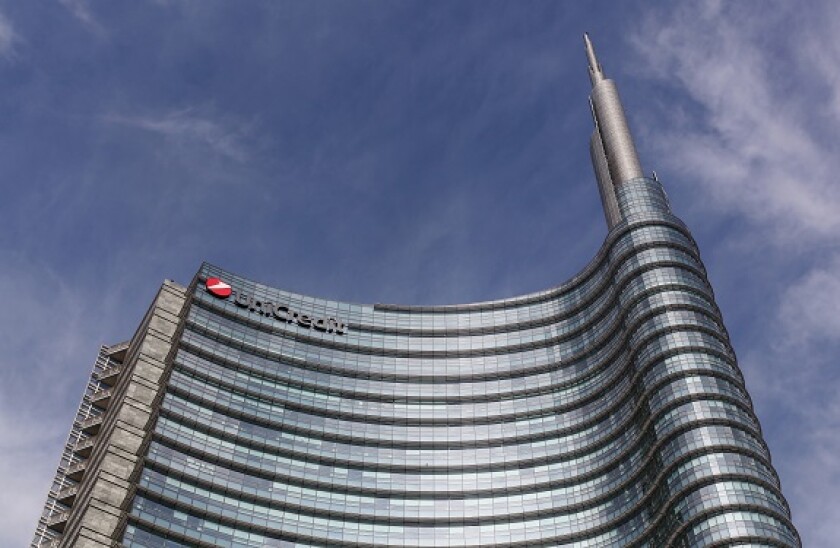Mustier's departure is thought to make a merger with troubled Banca Monte dei Paschi di Siena more likely, because he is believed to have been more wary than board members about taking on the troubled lender.
The manoeuvrings have therefore been interpreted as a sign that Italy's centre-left political establishment may be able to use UniCredit to clean up Italian banking. UniCredit's new chair, Pier Carlo Padoan, is the former Italian finance minister.
Whether a deal with Monte or anyone else can be signed quickly is another matter.
Coronavirus has challenged European lenders through the effect on interest rates and their loan books, and appears to have already driven consolidation.
Regulators are worried about non-performing loans but, all-in-all, in this crisis banks are seen as part of the first-aid response rather than the patient
Lenders remain key to the European Central Bank's attempts to transmit loose monetary policy, and have also proved a useful tool for extending public sector support to companies in the pandemic.
Supervisors have provided carrots: there has been accommodation on matters of capital, and hints of a relaxed approach to M&A, too. However, they haven't played nice all the time: banks have been prevented from paying dividends.
Bankers have sought comfort in the image-regenerative idea that they are now part of the solution, rather than the problem. In Italy, Monte is a problem — and UniCredit perhaps the solution. Shareholders are not so happy.

